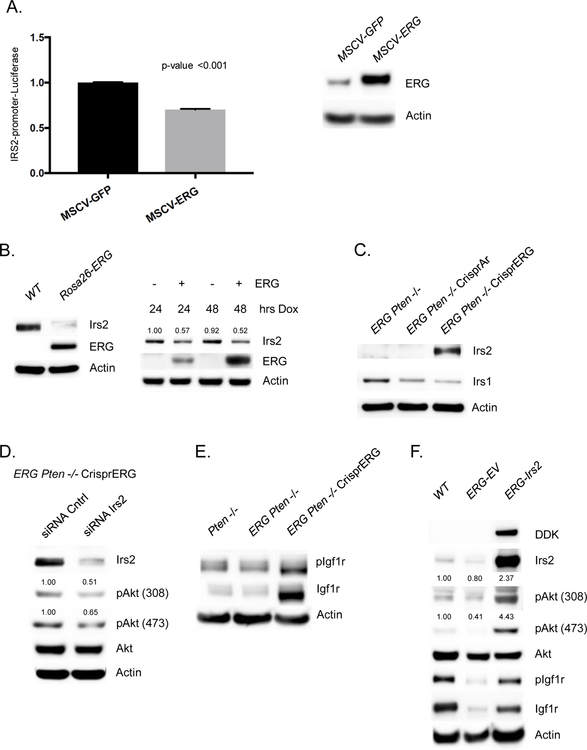Figure 3. ERG suppression of Down-regulation of IRS2 mediates IGF1R:PI3K signaling repression.
A) 293T cells transfected with IRS2-promoter-firefly luciferase construct with vector control or ERG co-expression demonstrates repressed promoter activity in the setting of ERG. Experiment performed in triplicate with error bars reporting standard deviation from the mean and normalized to Renilla luciferase. Western blot demonstrating ERG overexpression in the 293T cells. B) Acute doxycycline induced overexpression of ERG in wild-type prostate organoids versus vector control demonstrated a decrease in IRS2 levels correlated with ERG expression (experiment run in triplicate, quantification of Irs2 normalized to actin). C) IRS2 protein levels are repressed in Rosa-26 ERG Pten−/− organoids and knock-out of ERG is associated with a robust increase in IRS2 levels (experiment run in triplicate). D) siRNA knock-down of IRS2 following Crispr ERG in the Rosa26-ERG Pten−/− organoids reduced pAkt levels (experiment run in triplicate, quantification of pAkt normalized to actin and Akt). E) ERG Pten−/− organoids demonstrate reduced phosphorylation and total levels of Igf1R, that is increased following ERG knock-out (experiment run in triplicate). F) Prostate organoids derived from Rosa26-ERG mice demonstrate reduced IRS2 levels and repression of pIgf1r and PI3K signaling. Overexpression of IRS2 in Rosa26-ERG prostate organoids increases pIgf1r and PI3K signaling (experiment run in triplicate, quantification of pAkt normalized to actin and Akt).

